
First - as soon as you are navigating in or near an area where the visibility has dropped below 1,000m (further than you might think) there is a fundamental change in how the rules of the road apply. Rule 19 of the International Regulations for the Prevention of Collision at Sea (IRPCS) effectively means that in these circumstances all the usual rules regarding stand-on and give-way vessels change to everyone becoming give-way vessels. After all, if you can't see them clearly, how can you tell their intentions?
Second - your speed must be adapted to suit the visibility, meaning you must be able to comfortably stop within the distance you can see. So in open sea with just under 1,000m visibility that might not require any change of speed but if the location, traffic density or depth complicates things then somewhere between 6 and 10 knots may be more suitable. Any slower than that and you may have difficulty holding a straight course.
Your next steps should be to confirm your position and note it on a chart or logbook, turn on your navigation lights, ensure your crew are wearing lifejackets, switch on your radar and AIS if fitted, and comply with the correct sound signals. Lastly, ask all aboard to keep a look out using all available means.
This story is from the {{IssueName}} edition of {{MagazineName}}.
Start your 7-day Magzter GOLD free trial to access thousands of curated premium stories, and 9,000+ magazines and newspapers.
Already a subscriber ? Sign In
This story is from the {{IssueName}} edition of {{MagazineName}}.
Start your 7-day Magzter GOLD free trial to access thousands of curated premium stories, and 9,000+ magazines and newspapers.
Already a subscriber? Sign In
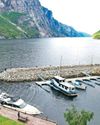
Lofoten or Bust- Part 4- Grandezza owner Per Harrtoft heads back to Sweden after an epic 3500nm adventure deep into the Arctic Circle to visit the mythical Lofoten islands
After ten memorable days in the Lofoten Islands in the far north of Norway, we are on our way back south towards Sweden. We have already made it as far as Trondheim, a charming place even if it was raining so hard we had to cycle round the city centre clutching umbrellas. But now we are back on board Deamare, our Grandezza 40 Fly, eating up the miles at a steady 31 knots.
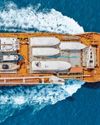
EVERYTHING YOU NEED TO KNOW ABOUT YACHT TRANSPORT
As the name suggests it's a means of having your boat moved professionally from one location to another. It might be as simple as hiring someone to tow your RIB a few miles down the road or as complex as shipping a superyacht halfway around the world.
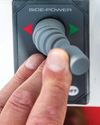
HANDLE A SINGLE SHAFTDRIVE BOAT PART 1
Single shaftdrive boats are relatively rare these days but the reduced costs of buying, servicing and fuelling such a simple but reliable drivetrain does mean they are making a bit of a comeback.
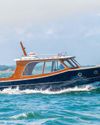
COCKWELLS MOTOR LAUNCH
There can be very few boats that have appeared three times at the Southampton Boat Show and been sold off the stand each time.
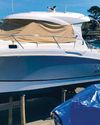
INSTALLING AN AUTOPILOT
Rick Channon makes solo boating simple with a Raymarine Evolution Autopilot

GOOD AS NEW
Why fit a brand new engine when Volvo Penta's remanufacturing service can rebuild you an old one to the same standard for a fraction of the price?
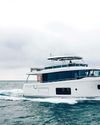
BENETEAU SWIFT TRAWLER 54
Alex Smith heads to France's Beneteau HQ for a UK exclusive on what might just be the best Swift Trawler yet
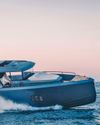
ΧΟ EXPLR 44
Can XO's all-new aluminium flagship really make it big in the Med?
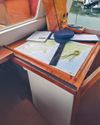
BUYING OUR FIRST CLASSIC
Instead of whiling away their retirement playing bowls, Rob and Shona Adams decided to invest their time and money in a classic Silver gentleman's yacht. Would the gamble pay off?
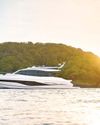
PRINCESS S65
Torn between the V and F Class flagships? The new S65 might be the boat you've been waiting for...